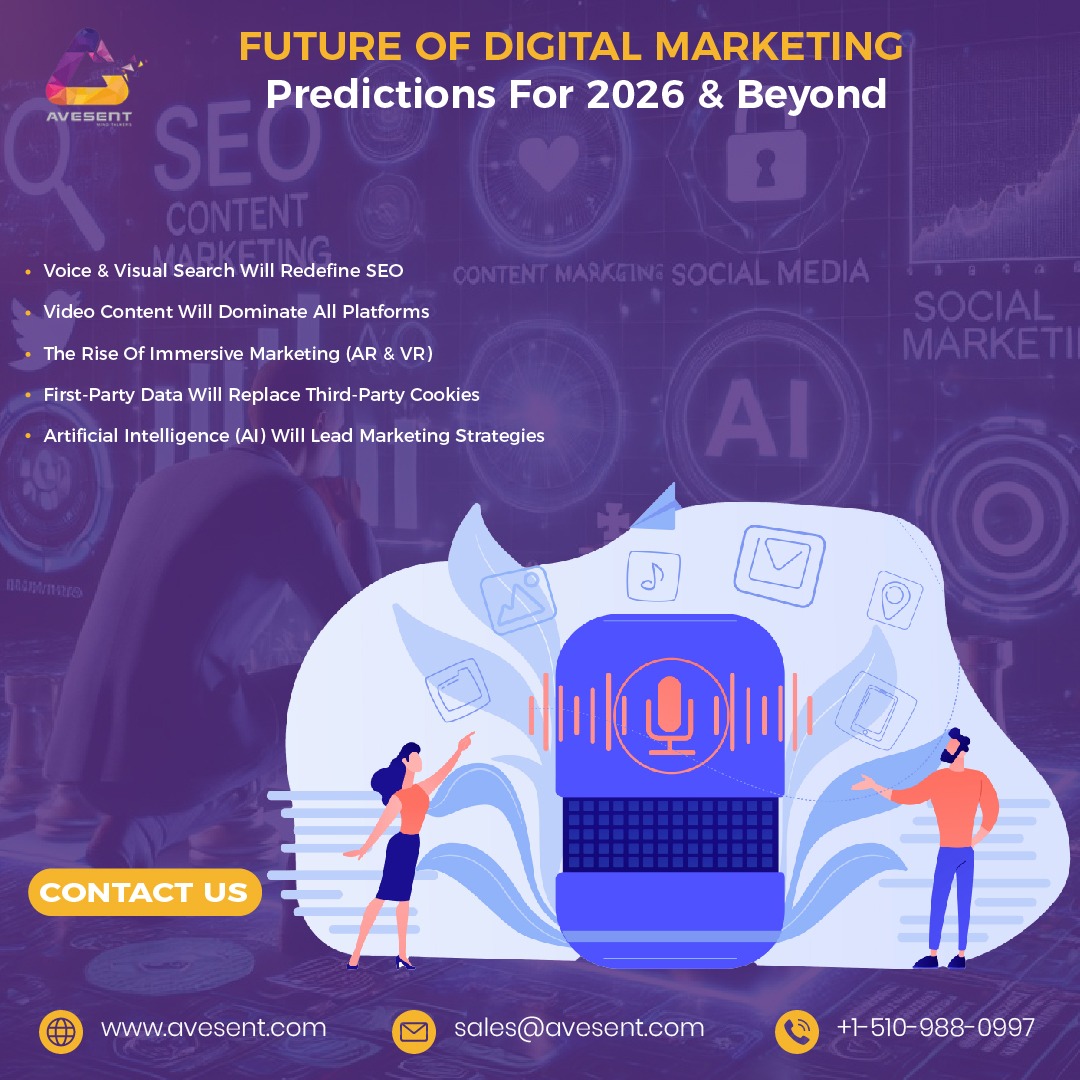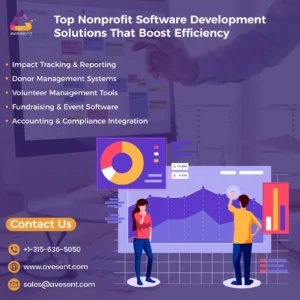Digital marketing is evolving faster than ever. With constant changes in technology, consumer behavior, and global markets, businesses must stay ahead to remain competitive. As we move toward 2026 and beyond, digital marketing will not just be about visibility—it will be about delivering personalized, immersive, and trustworthy experiences.
1. Artificial Intelligence (AI) Will Lead Marketing Strategies
AI is no longer a futuristic concept—it’s already a part of digital marketing. From chatbots to personalized recommendations, AI helps businesses understand customers better. By 2026, AI-driven tools will dominate areas like:
- Predictive analytics for consumer behavior
- Automated ad campaigns with real-time optimization
- Hyper-personalized content delivery
Marketers will rely heavily on AI to create smarter campaigns, reduce costs, and maximize ROI.
2. Voice and Visual Search Will Redefine SEO
Search engines are evolving beyond text. With the rise of smart assistants like Alexa, Siri, and Google Assistant, voice search will become the norm. Similarly, visual search—where users search with images instead of words—will gain popularity.
Businesses must optimize their websites for conversational queries, long-tail keywords, and image-based searches to stay relevant.
3. The Rise of Immersive Marketing (AR & VR)
Augmented Reality (AR) and Virtual Reality (VR) are set to transform the way brands interact with customers. Imagine trying on clothes virtually or touring a property in VR before making a decision. By 2026, AR/VR marketing campaigns will become mainstream, especially in e-commerce, real estate, and education.
4. First-Party Data Will Replace Third-Party Cookies
Privacy concerns are reshaping marketing strategies. With stricter data protection laws and the phasing out of third-party cookies, businesses will shift focus to first-party data collection. Building direct relationships with customers through email marketing, loyalty programs, and app engagement will become critical.
Trust and transparency will define the winners in the digital marketing space.
5. Video Content Will Dominate All Platforms
Short-form videos like Instagram Reels, YouTube Shorts, and TikTok clips are already capturing attention. By 2026, video will remain the most powerful marketing tool, but with greater emphasis on interactive and shoppable videos.
Brands will use video not just for entertainment but also for education, customer support, and product demonstrations.
6. Sustainability and Purpose-Driven Marketing
Consumers are becoming more conscious about the environment and social issues. Brands that show genuine commitment to sustainability will earn customer loyalty. Digital marketing campaigns highlighting eco-friendly practices, social impact, and corporate responsibility will gain more traction than traditional promotional ads.
7. The Metaverse and Web3 Marketing
The metaverse and blockchain technologies are creating new digital landscapes. Virtual stores, NFTs, and cryptocurrency-based loyalty rewards will redefine customer engagement. By 2026, Web3 marketing strategies will be a strong differentiator for forward-thinking brands.
Conclusion
The future of digital marketing promises innovation, personalization, and deeper customer connections. Businesses that adapt to AI, immersive technologies, privacy-first strategies, and purpose-driven marketing will thrive in 2026 and beyond.
Now is the time for brands to invest in these emerging trends to build long-term success in the digital-first world.




